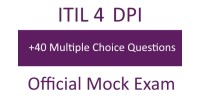As a project manager in a medium-sized, software development-focused company, I follow a process for the projects I’m responsible for.
However, with larger projects, change that affects the company more widely and the need in our industry to prioritize projects, I felt the need to understand more about programme management.
Certifying in Managing Successful Programmes (MSP®) is also part of thinking about what comes next in a project management career.
Programme management versus project management
When studying MSP, the main thing I noticed was the existence and scale of change management in programmes.
Where project management might be purely product-focused and not always involve change management, programmes – with their size, duration and number of people involved – tend to.
For example, the way an organization’s target operating model can change as the result of a programme is something not usually associated with projects. The sheer number of stakeholders means there’s more to consider with communications, channels and mandates. This is especially true in businesses with flat management structures.
Adopting MSP principles, themes and processes
After completing the MSP certification, I went back through the course to see how I could use the guidance in my own work.
For me, the MSP principles – including lead with purpose and collaborate across boundaries – made a big impression when it comes to maintaining a strong company culture.
And despite programme management containing many connected elements, the MSP approach is so much more agile than people might imagine.
Certain methods, like the stakeholder plan, are something any company can use: outlining every stakeholder based on impact, engagement, their communications channels and correlating that with the standard organizational chart.
In my case, the concept of dependencies makes a lot of sense: in other words, the different dependencies across teams, partners, resources and how they impact the management process.
Also, using the knowledge chain idea means capturing the various types of information generated during a project – such as new types of software, code and functionality. This also extends to organization-wide knowledge gained about how to run different projects and programmes.
The need to retain knowledge for people to refer to in future change initiatives means we are now documenting more through writing guides, manuals and sharing information across teams.
Complementary skills and knowledge
Whether you are project manager choosing to remain in that role or someone with ambitions to manage programmes, it’s essential to have a bigger picture understanding in your organization
Even at a project level, it’s possible to use the principles, themes and processes in MSP and to have a broader awareness of how things work beyond your individual project: streamlining processes for stakeholders, managing risks, dependencies and documenting knowledge.
Most important, I think this knowledge helps with aligning priorities. For example, when there are several projects running, knowing what to focus on and enabling teams to understand what senior management priorities are, without micromanaging.
So, whether you become a programme manager or not, having knowledge such as MSP gives you a bigger toolbox of skills and the ability to react to many more situations; providing senior stakeholders with support backed up with structured suggestions and better reasoning.
Being agile and able to respond to organizational and market change is crucial for change professionals; handling emergent technologies, new competitors and the many things that can change the trajectory of a company.
Therefore, it’s important to create a culture where change is accepted and priorities aligned on an on-going basis.
Source: Axelos Blog, Author Raya Slavova Project Manager, PatientSky







